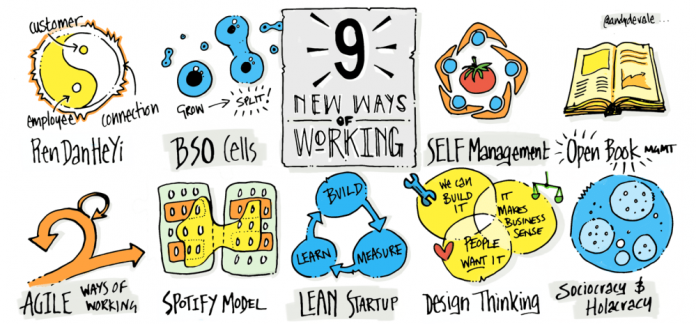Life expectancies are increasing across the globe and as a result people’s careers are set to last longer. Businesses must adapt to accommodate the multistage career of employees in order to retain skilled workers, says recruiting experts Hays.
The idea of a ‘job for life’ and the typical career path whereby people are educated, then start work before retiring is already becoming a thing of the past, as people living longer means they will be expected to work beyond current retirement ages. As a consequence, workers are increasingly looking for a new type of career structure, one that allows for flexibility to explore other areas of professional interest and multiple careers throughout their working life.
Grant Torrens, Business Director of Hays Singapore says; “The younger members of today’s workforce, and those yet to join, will be working longer than any generation before them and it is only natural that workers will increasingly look for variety in their work, such as changing careers. This will become more commonplace as time progresses, this means businesses must start preparing themselves now, as the traditional workplace structure doesn’t lend itself to these new demands.”
A change in career will require professionals to retrain or upskill, so continuing education will become a vital part of the multi-stage career. Instead of undertaking higher education at just the very beginning of a career, workers will need to make sure they carry out lifelong learning throughout their working life. Experts predict the multi-stage career is set to become the norm in the near future, therefore businesses must futureproof themselves to ensure they can access and retain skills needed to succeed.
How can organisations support and even encourage these new ways of working?
- Ensure contracts allow for flexibility.
Many current contract types don’t provide much flexibility to employees wanting to work different hours or pursue other professional interests outside of work. Providing employees with more flexibility will help businesses retain talented workers. Grant comments; “As long as an employee is completing the work they are paid to do, then they could be given the flexibility to pursue other interests. However, businesses must still be fully aware of an employee’s others work commitments and whether this has the potential to impact their main role.”
- Invest in the skills of employees by encouraging learning
Businesses can encourage employees to upskill themselves or even retrain to satisfy their desire to learn new skills or take up a different role. Doing so will provide organisations with more skills at their disposal, helping to combat skill shortages but also providing their workers with the freedom to move into other roles.
- Help employees to embrace change and the new workplace
Businesses need to educate their staff on the options open to them and support them in this new career structure. If they are able to nurture an employee’s desire to learn new skills or explore other areas of interest they are more likely to keep hold of their experience and expertise for longer.
- Organisations should also be looking at other means of supporting workers
Organisations can offer returnships to professionals who left the world of work to raise a family for instance. This will ensure valuable skills are brought back into the workforce. Businesses can also create apprenticeship roles targeted at older workers – as the retirement age is raised older workers will be looking for new careers. Organisations can also offer remote working to employees who have commitments at home and are less able to make it into an office.
And to conclude, Alistair Cox, Hays CEO, adds, “It’s our duty as forward-thinking employers to start to think about what these future generations will need from us. We must work to try to anticipate those future needs, and this may mean we’ll need to change the way we’ve traditionally done things.”
Source: Hays




















